★★★
“Not your usual women-in-prison film…”
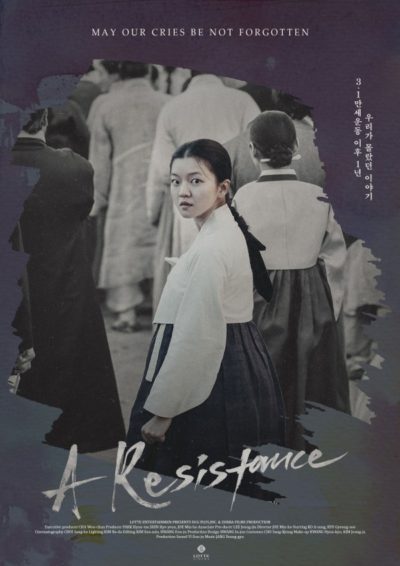 This takes place in 1919-20, when Korea was under occupation by the Japanese [there seems to be quite a lot of this about; I’ve seen a bunch of Chinese movies set when that country was occupied by Japan as well]. Even demonstrating against the Japanese, or in favour of Korean independence, was sternly forbidden, with those taking part likely to be arrested and thrown in prison for months. If they were lucky, that is: an opening caption tells us 7,500 were killed in the protests or died in jail subsequently. Even for those merely arrested, this was not a “nice” prison, to put it mildly, with horrendously over-crowded conditions (24 to a cell!), freezing temperatures and meagre rations.
This takes place in 1919-20, when Korea was under occupation by the Japanese [there seems to be quite a lot of this about; I’ve seen a bunch of Chinese movies set when that country was occupied by Japan as well]. Even demonstrating against the Japanese, or in favour of Korean independence, was sternly forbidden, with those taking part likely to be arrested and thrown in prison for months. If they were lucky, that is: an opening caption tells us 7,500 were killed in the protests or died in jail subsequently. Even for those merely arrested, this was not a “nice” prison, to put it mildly, with horrendously over-crowded conditions (24 to a cell!), freezing temperatures and meagre rations.
Once such prisoner was Yu Gwan Sun (Go), 16 years old at the time of her imprisonment: her sentence was three years, due to contempt of court being added on to the normal charge. However, she would not be cowed by the punishment, and refused to bow to the will of her captors – for example, refusing to speak to them in Japanese, even though she could. Such disrespect, and her “defiant face”, inevitably brought Yu into conflict with the authorities, including the warden, and Korean collaborator Jung Chun-young, who acts as a translator. They try to break her will, but her refusal to accept even her status as a prisoner, never mind their authority, remains defiant.
The historical Yu does seem to have been an unrepentant, patriotic bad-ass, sometimes referred to as Korea’s Joan of Arc, and with at least half a dozen films based on her life story. While in prison, she wrote: “Even if my fingernails are torn out, my nose and ears are ripped apart, and my legs and arms are crushed, this physical pain does not compare to the pain of losing my nation… My only remorse is not being able to do more than dedicating my life to my country.” Joe films almost the whole movie in stark black-and-white, save for occasional coloured flashbacks, and music is also used sparingly. This certainly gives a realism to proceedings, though I did feel the portrayal here was a bit too good to be true – putting the “Saint” in “Saint Joan”, if you wish.
It may also be a little restrained, with the tortures inflicted on her coming across as little more than an inconvenience. Perhaps the little things here are most effective, such as the prisoners sharing body warmth, to try and protect a new-born baby. It builds to Yu’s carefully crafted act of defiance, leading a cheer for Korean independence which flows through the prison and to the outside world, triggering further anti-Japanese protests. Even after her fellow inmates are released, she is kept in jail: the final lines of dialogue are an exchange that sums up her obstinate refusal to give up. Asked “Why must you do this?,” Yu almost shrugs: “Then who will?” [She died at age 17, still in jail, a few days before her scheduled release date.] This shines a light onto an area of history I knew nothing about, though I’m hard pushed to say it illuminated much more than the heroine.
Dir: Joe Min-ho
Star: Go Ah-sung, Ryu Kyung-soo, Kim Sae-byuk, Kim Ye-eun





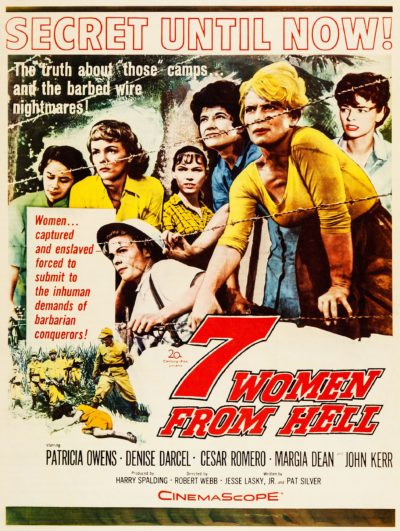 About the only review online I found for this, said it “may be the worst movie released in 1961.” I can only presume the writer of that statement has never seen The Beast of Yucca Flats. Even if I admit its weaknesses, Seven is nowhere near the same league of badness. Indeed, it starts off well, depicting the sudden invasion of Papua New Guinea by Japanese forces in 1942, with “enemy” civilians being herded into interment camps. The ones on the women’s side are a multi-national bunch, including Australian Grace Ingram (Owens), several Americans including Janet Cook (Craig), a German widow Ann Van Laer (Sylvia Daneel), Frenchwoman Claire Oudry (Darcel), and mixed-race nurse Mai-Lu Ferguson (Pilar Seurat).
About the only review online I found for this, said it “may be the worst movie released in 1961.” I can only presume the writer of that statement has never seen The Beast of Yucca Flats. Even if I admit its weaknesses, Seven is nowhere near the same league of badness. Indeed, it starts off well, depicting the sudden invasion of Papua New Guinea by Japanese forces in 1942, with “enemy” civilians being herded into interment camps. The ones on the women’s side are a multi-national bunch, including Australian Grace Ingram (Owens), several Americans including Janet Cook (Craig), a German widow Ann Van Laer (Sylvia Daneel), Frenchwoman Claire Oudry (Darcel), and mixed-race nurse Mai-Lu Ferguson (Pilar Seurat). 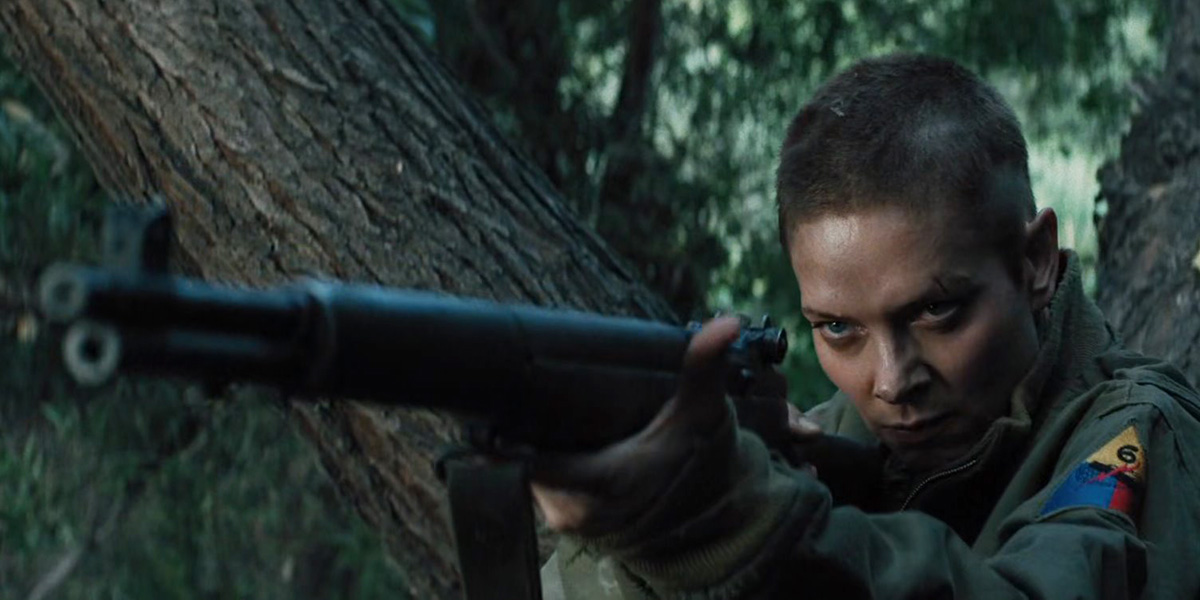 ★★★½
★★★½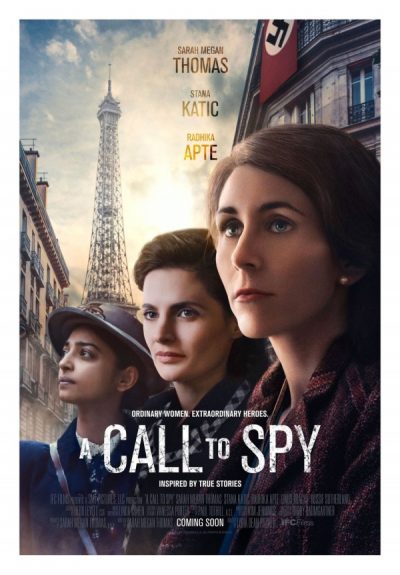
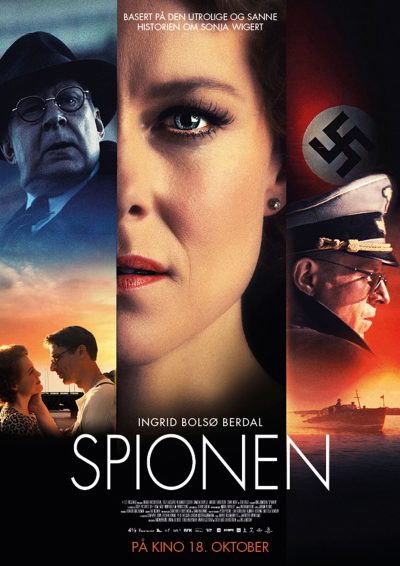
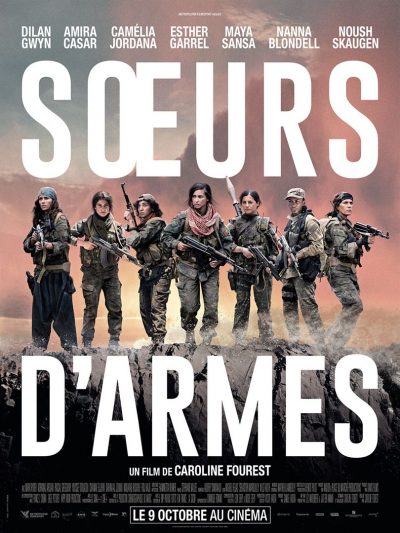 This suffers from being almost exactly the same story as the previous feature we reviewed about women Kurdish fighters going up against ISIS,
This suffers from being almost exactly the same story as the previous feature we reviewed about women Kurdish fighters going up against ISIS, 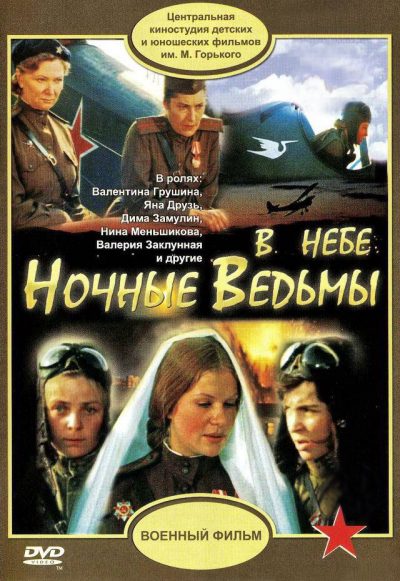
 The profession of journalist is not exactly well-regarded by many people these days. So it’s nice occasionally to be reminded that they can still potentially be action heroes, risking their own lives in pursuit of the truth. In this case, it’s Marie Colvin (Pike), a foreign correspondent for London’s Sunday Times newspaper, who lost an eye while covering the civil strife in Sri Lanka, leading to a piratical eye-patch for the rest of her career. Most people would treat that as a sign from the universe to look into a change of profession. But Colvin was made of sterner stuff, despite a hellacious case of post-traumatic stress disorder, with which she largely coped by drinking heavily. So she and photographer sidekick Paul Conroy (Dornan) continue to venture into the world’s hot-spots, whether it’s Iraq, Libya or Syria. There, they expose the terrible human cost that the conflicts have on the local population, without apparent concern for their own safety.
The profession of journalist is not exactly well-regarded by many people these days. So it’s nice occasionally to be reminded that they can still potentially be action heroes, risking their own lives in pursuit of the truth. In this case, it’s Marie Colvin (Pike), a foreign correspondent for London’s Sunday Times newspaper, who lost an eye while covering the civil strife in Sri Lanka, leading to a piratical eye-patch for the rest of her career. Most people would treat that as a sign from the universe to look into a change of profession. But Colvin was made of sterner stuff, despite a hellacious case of post-traumatic stress disorder, with which she largely coped by drinking heavily. So she and photographer sidekick Paul Conroy (Dornan) continue to venture into the world’s hot-spots, whether it’s Iraq, Libya or Syria. There, they expose the terrible human cost that the conflicts have on the local population, without apparent concern for their own safety.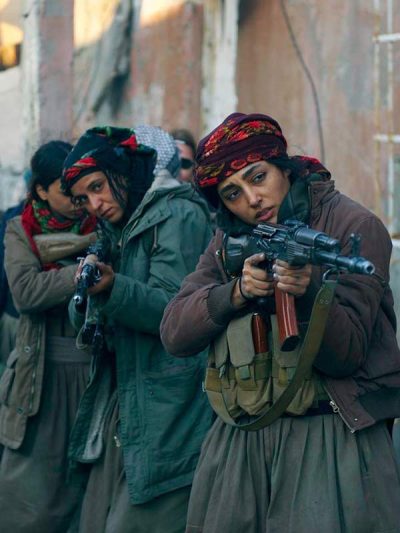 There’a a good film in here. Actually, there may be as many as three good films in here. But the way in which they are melded together, manages to rob a good chunk of the power and impact from all of them. We begin by following Mathilde H (Bercot), a war journalist clearly modelled
There’a a good film in here. Actually, there may be as many as three good films in here. But the way in which they are melded together, manages to rob a good chunk of the power and impact from all of them. We begin by following Mathilde H (Bercot), a war journalist clearly modelled  I reviewed the
I reviewed the